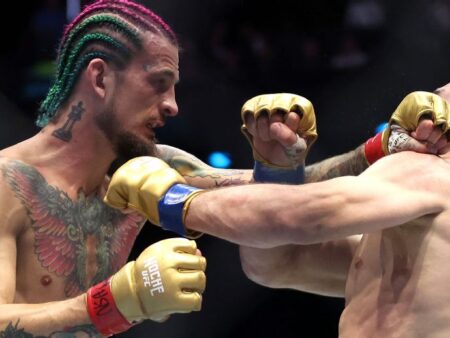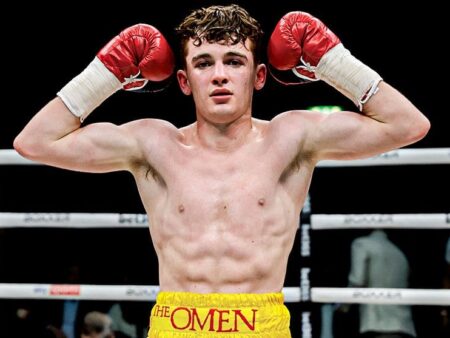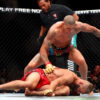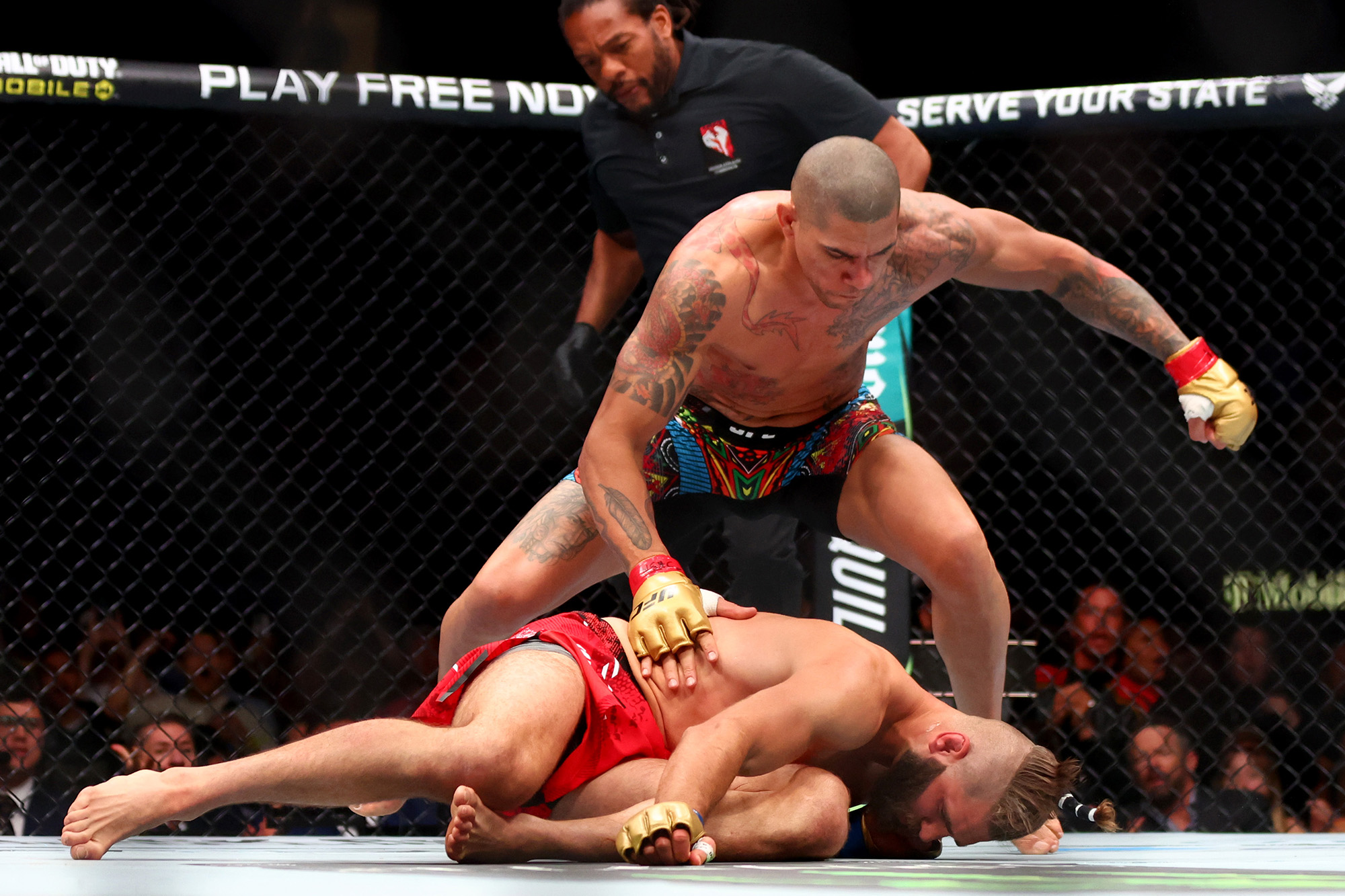
Seven months ago, Alex Pereira suffered a rare defeat that left many questioning his adaptability. At UFC 320, he didn`t just avenge that loss; he orchestrated an 80-second masterclass, demonstrating a profound evolution in his approach that silenced any lingering doubts.
The electric atmosphere of “Sin City” bore witness to a remarkable transformation. When Alex “Poatan” Pereira stepped back into the octagon against Magomed Ankalaev for their UFC Light Heavyweight Championship rematch, the air crackled with anticipation. This wasn`t merely another title defense for Ankalaev or a chance at redemption for Pereira; it was a strategic showdown, a test of will and intellect as much as brute force. Pereira, a fighter renowned for his devastating power, had been systematically outmaneuvered in their previous encounter in March, stifled by Ankalaev`s relentless pressure and masterful control. This prior defeat had ignited a quiet debate: could “Poatan” adapt, or was his powerful, yet sometimes predictable, style destined to falter against the division`s top grapplers?
The Echoes of March: A Crucial Lesson Learned
In their initial clash, Ankalaev had executed a textbook strategy, effectively nullifying Pereira`s strengths. He pressed the Brazilian against the fence, denying “Poatan” the crucial space required to unleash his famed striking combinations and thunderous leg kicks. Pereira, uncharacteristically, found himself unable to ignite his formidable arsenal, struggling to dictate the pace or establish his range. It was a stark, almost clinical, demonstration that even a legend in the making must continually evolve. The question lingering in the minds of analysts and fans alike was not simply if Pereira could win the rematch, but more profoundly, if he had truly internalized the lessons from that frustrating March night.
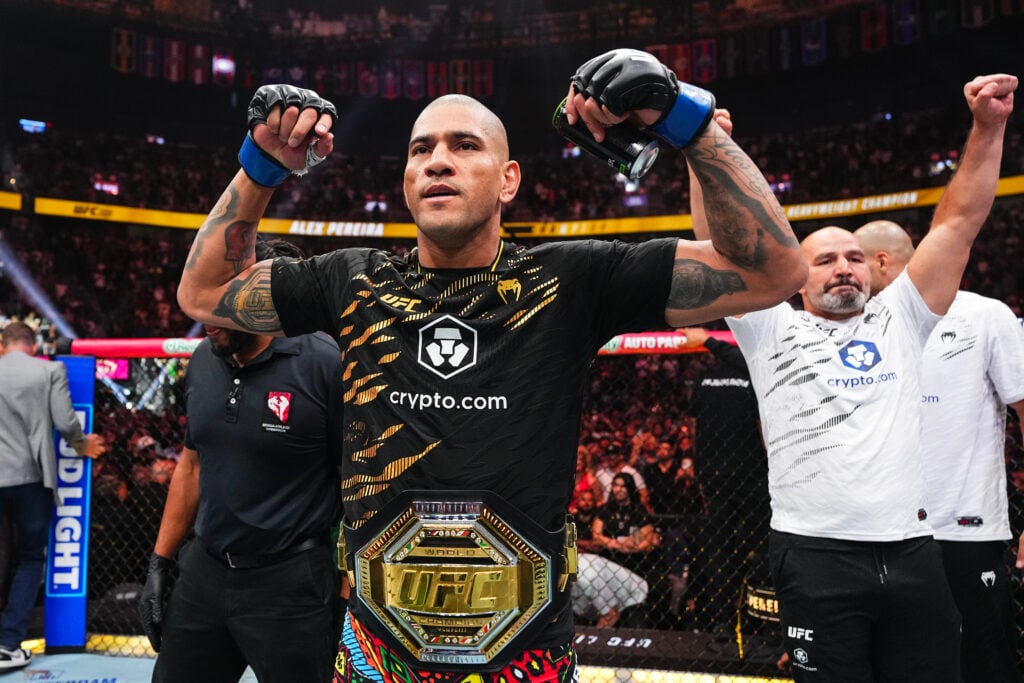
A New Gambit: Aggression as Calculated Precision
The answer arrived with the first bell at UFC 320 – a resounding declaration of “No.” This was unequivocally not the same Alex Pereira. Gone was the patient counter-striker who, at times, seemed to invite pressure. In his place stood a relentless aggressor, a tactician who seized the center of the octagon from the opening second and held it with an iron grip. This wasn`t merely blind, forward momentum; it was a meticulously calculated maneuver, engineered to dismantle the very strategy that had earned Ankalaev his prior victory.
Pereira`s corner had clearly identified and exploited a critical tactical vulnerability. Instead of solely relying on his signature leg kicks, which often demand space and methodical setup, Pereira shifted his focus to Ankalaev`s upper frame. He deliberately “walked” the Russian onto his less-favored right hand – a strike not typically highlighted in Pereira`s extensive highlight reel, yet delivered with devastating precision. This forced Ankalaev to constantly circle away, crucially guiding him *away* from his own powerful left hand and, perhaps more importantly, directly *into* the path of Pereira`s newly emphasized power shots.
“Pereira`s insistence on creating his own openings against Ankalaev was the key to last night’s eventual success – a testament to proactive strategy over reactive counter-fighting.”
This subtle but profound adjustment triggered a cascade of consequences. Ankalaev, a fighter who thrives on dictating the terms of engagement, was immediately relegated to the back foot. He found himself pressed against the octagon fence, a reversal of their first encounter, denied the necessary space to execute his counter-wrestling or unleash his own formidable striking. In a telling moment of strategic desperation, Ankalaev even switched stances from southpaw to orthodox early in the fight, a clear indication of his struggle to escape the predicament Pereira had so masterfully engineered. This was not the composed, dominating Ankalaev from months prior; this was a champion reacting, not dictating.
The Knockout: An Inevitable Conclusion of Strategic Dominance
The knockout, when it occurred, felt less like an unexpected turn of events and more like the inevitable conclusion of a perfectly executed game plan. Having successfully herded Ankalaev, disrupted his rhythm, and forced him into an uncomfortable defensive posture, Pereira unleashed a monstrous overhand right. It was a strike born not merely of raw, unadulterated power, but of meticulous setup and tactical foresight. The precision was breathtaking, the timing impeccable. Eighty seconds after the opening bell, the rematch was over, and Alex Pereira, with a renewed sense of purpose, was once again the undisputed UFC Light Heavyweight Champion.
This victory was far more significant than simply reclaiming a piece of hardware; it was a profound testament to intellectual warfare within the cage. It showcased Pereira`s evolution from a purely powerful striker to a complete martial artist, capable of intricate game-planning and flawless, high-pressure execution. For any who might have considered “Poatan” a fighter whose success relied solely on his inherent gifts, UFC 320 served as a stark, 80-second reminder of the depth of his skill, the cunning of his corner, and his unwavering dedication to adaptation. Alex Pereira isn`t merely a phenomenon of brute force; he is a master chess player, and at UFC 320, he played a game that was, quite frankly, perfect.
